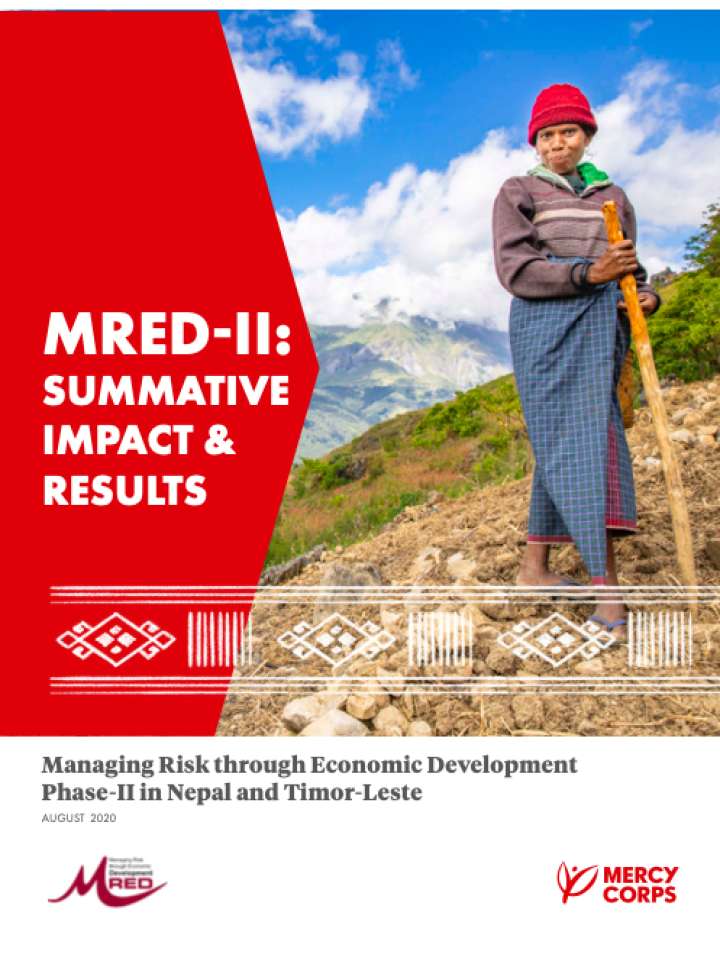Managing risk through economic development phase II in Nepal and Timor-Leszte
This document presents the work of MRED-II to improve the resilience of farmer cummunities in Nepal and Timor-Leste. The purpose of MRED-II is to enable vulnerable smallholder farming communities in Nepal and Timor-Leste to be more resilient to natural hazards and the adverse effects of climate change by facilitating improved solutions that empower smallholder farmers to build their economic and ecological resilience through a replicable, sustainable, and scalable model.
In Nepal, MRED-II has worked with 62 communities and 5,314 households across 4 districts to build stronger resilience capacities to manage future disasters and had the following results:
- MRED-Nepal communities are better prepared for disaster.
- MRED households improved livelihood recovery times for all types of disasters.
- MRED households increased confidence in their ability to cope with disasters
- Average time income generating activities are disrupted by a shock (in months)
MRED’s work in Timor-Leste spanned 35 communities across 3 districts to build up resilience capacities to manage future disasters with the following results:
- MRED households reduced use of risky behaviors by 2 points on the coping strategies index (CSI) (baseline of15.7 to endline of 13.7) despite an increase in disasters.
- Households who practiced MRED nexus and climate-sensitive gardening resumed income-generating activities after a wind shock half a month more quickly than non-MRED.
- MRED-TL communities reported a 15% increase in confidence in their ability to cope with wind shocks
Explore further
